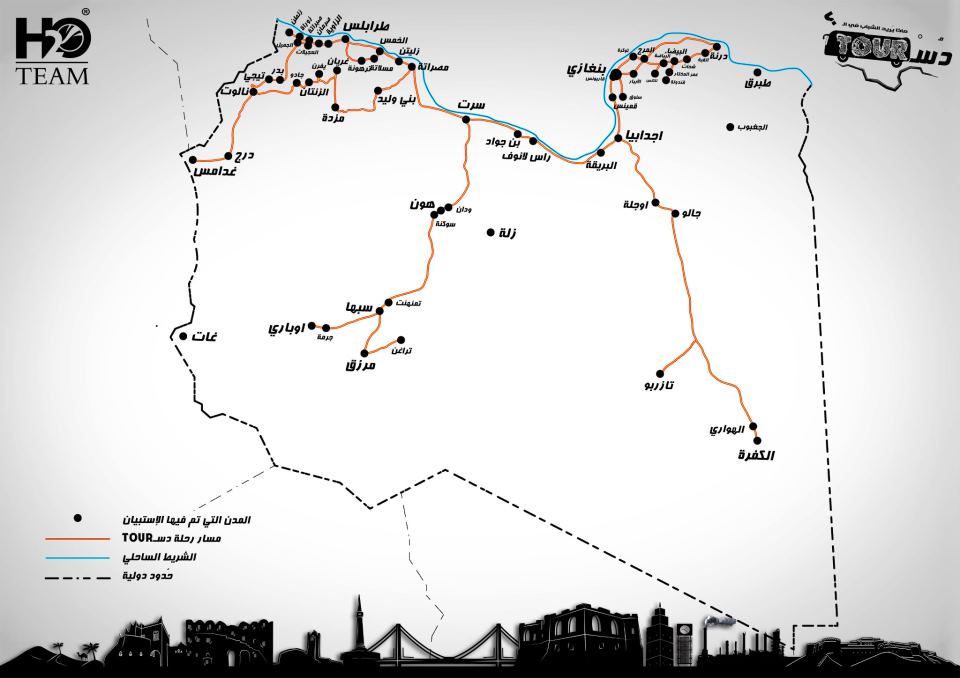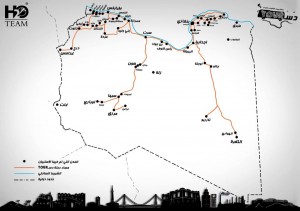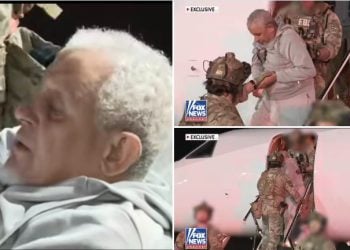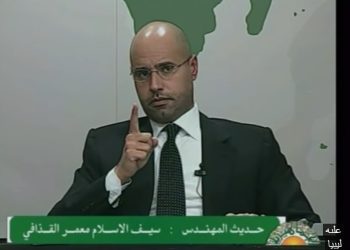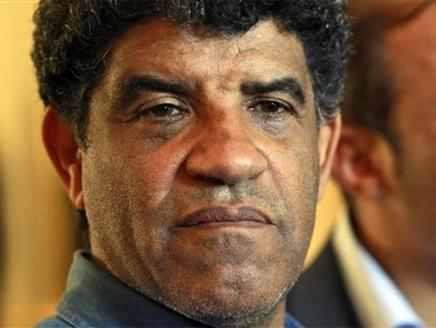By Nihal Zaroug.
Tripoli, 20 April 2013:
The constitutional awarness national . . .[restrict]tour, Das-Tour, organised by civil society organisation H2O, has come to a close after an arduous 45-day cross-country bus tour spread out over a five-month period. The over 60-town journey – aimed to explore “what youth want in the constitution” – was hailed as a formable initiative by many attendees at the organisation’s introductory ceremony for the campaign on 17 April.
The surveys completed during the tour have yet to be fully processed, as the team is seeking the support of a local partner for the final stage.
Alhadi Hammuda, H2O’s media representative, told the Libya Herald, “we have had considerable interest from various Libyan donors to partake in this last juncture and we believe a local partner is more fitting as it projects a level of nationalism”.
For the first two stages, Middle East Partnership Initiative (MEPI) and Chemonics were project partners, and contrary to what many believe, the aid organisations did not attach conditions to grant receivers. Personnel from Chemonics, confirmed to the Libya Herald, that H2O was fully independent to develop the project.
Ala’a Alganbur, Das-Tour’s project manager, gave a brief overview of the campaigns phases, which have been grouped under three main categories. The first phase, involved educating H2O members on the constitution building process, including the importance of the actual text, and rights and freedoms typically granted to citizens.
The second phase, involved the training of members in research methodology, survey formulation and – of utmost importance – how to remain objective. The group attended a ten-day course at the Degrees Center for Researches, Studies and Training. An instructor of the group present said she was honoured to teach young people as dedicated as the members of H2O. If similar youth groups existed across the country, she added, then “Libya’s future was in good hands”.
H2O says the last phase was the most important and dangerous, as tour dates coincided with clashes in the south of the country. Despite security issues, the data collection team was keen to press on and survey as many towns as possible. According to Haider Dawi, the campaign’s coordinator, some 4,000 surveys were collected throughout the trip.
Dawi said some were apprehensive about discussing the constitution, as their knowledge was limited but once main themes were explained, they could formulate an opinion on what they considered important. Many people, said Dawi, were unaware a new constitution was to be written.
In the Jebel Nafusa, the data collection team faced some confrontation by a group of male adolescents in Yefren, who reacted negatively towards efforts to engage them in discussions. After noticing that the teenagers seemed interested but reluctant, a team member pulled one of the youth aside and discovered that the group was illiterate. The team quickly offered to help them complete the survey by reading questions and writing out word for word their answers. This experience highlighted the importance of their mission and the need for the constitution to guarantee educational rights for all.
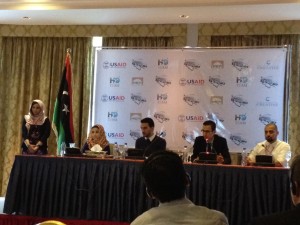
Addressing the H2O’s speaker panel, Congressman Mohamed Darrat, thanked the organisation for the work they undertook and said constitution awareness was vital, as the constitution was a unifying force for Libya. He added, that it was not only about the text but what the charter, as a document, represented for the future of country and the needs of Libyans.
Darrat recommended the surveys’ findings be presented as soon as possible to the committee tasked with drafting the Constitutional Commission election law, as it could be of benefit. The short 30-day period given to the committee to draft the law, may prove a challenge for H2O team who have yet to complete the analysis of data.
However, H2O’s intended audience is the General National Congress (GNC), the Government and the 60-member Constitutional Commission. They hope their findings will be taken into consideration by the drafting committee and plan to hold workshops to further promote young people’s’ interests and demands ahead of the constitution drafting period.
From a preliminary overview of data, the team identified that participation in political processes was deemed important for the young people sampled. The later also placed high significance on the role of the state in developing the economy and employment, and the right of access to information. [/restrict]
